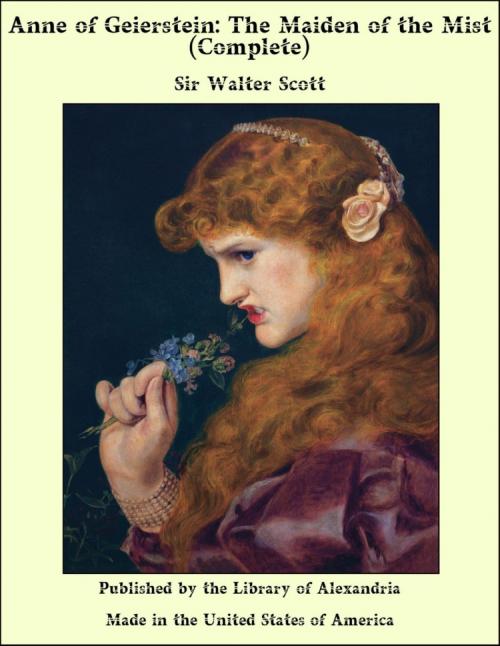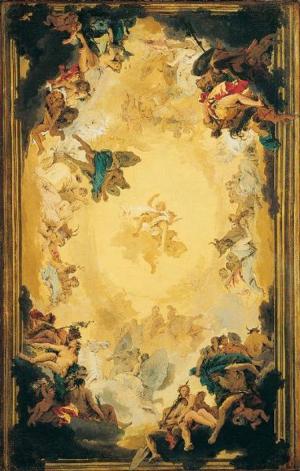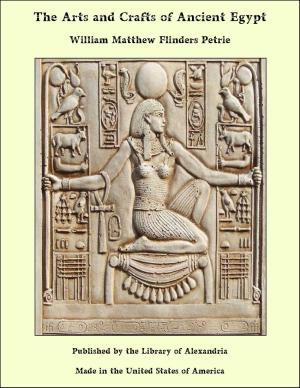Anne of Geierstein: The Maiden of the Mist (Complete)
Nonfiction, Religion & Spirituality, New Age, History, Fiction & Literature| Author: | Sir Walter Scott | ISBN: | 9781465597595 |
| Publisher: | Library of Alexandria | Publication: | March 8, 2015 |
| Imprint: | Language: | English |
| Author: | Sir Walter Scott |
| ISBN: | 9781465597595 |
| Publisher: | Library of Alexandria |
| Publication: | March 8, 2015 |
| Imprint: | |
| Language: | English |
This novel was written at a time when circumstances did not place within my reach the stores of a library tolerably rich in historical works, and especially the memoirs of the Middle Ages, amidst which I had been accustomed to pursue the composition of my fictitious narratives. In other words, it was chiefly the work of leisure hours in Edinburgh, not of quiet mornings in the country. In consequence of trusting to a memory, strongly tenacious certainly, but not less capricious in its efforts, I have to confess on this occasion more violations of accuracy in historical details, than can perhaps be alleged against others of my novels. In truth, often as I have been complimented on the strength of my memory, I have through life been entitled to adopt old Beattie of Meikledale's answer to his parish minister when eulogising him with respect to the same faculty. "No, doctor," said the honest border-laird, "I have no command of my memory; it only retains what happens to hit my fancy, and like enough, sir, if you were to preach to me for a couple of hours on end, I might be unable at the close of the discourse to remember one word of it." Perhaps there are few men whose memory serves them with equal fidelity as to many different classes of subjects; but I am sorry to say, that while mine has rarely failed me as to any snatch of verse or trait of character that had once interested my fancy, it has generally been a frail support, not only as to names, and dates, and other minute technicalities of history, but as to many more important things. I hope this apology will suffice for one mistake which has been pointed out to me by the descendant of one of the persons introduced in this story, and who complains with reason that I have made a peasant deputy of the ancestor of a distinguished and noble family, none of whom ever declined from the high rank to which, as far as my pen trenched on it, I now beg leave to restore them. The name of the person who figures as deputy of Soleure in these pages, was always, it seems, as it is now, that of a patrician house. I am reminded by the same correspondent of another slip, probably of less consequence. The Emperor of the days my novel refers to, though the representative of that Leopold who fell in the great battle of Sempach, never set up any pretensions against the liberties of the gallant Swiss, but, on the contrary, treated with uniform prudence and forbearance such of that nation as had established their independence, and with wise, as well as generous kindness, others who still continued to acknowledge fealty to the imperial crown. Errors of this sort, however trivial, ought never, in my opinion, to be pointed out to an author, without meeting with a candid and respectful acknowledgment.
This novel was written at a time when circumstances did not place within my reach the stores of a library tolerably rich in historical works, and especially the memoirs of the Middle Ages, amidst which I had been accustomed to pursue the composition of my fictitious narratives. In other words, it was chiefly the work of leisure hours in Edinburgh, not of quiet mornings in the country. In consequence of trusting to a memory, strongly tenacious certainly, but not less capricious in its efforts, I have to confess on this occasion more violations of accuracy in historical details, than can perhaps be alleged against others of my novels. In truth, often as I have been complimented on the strength of my memory, I have through life been entitled to adopt old Beattie of Meikledale's answer to his parish minister when eulogising him with respect to the same faculty. "No, doctor," said the honest border-laird, "I have no command of my memory; it only retains what happens to hit my fancy, and like enough, sir, if you were to preach to me for a couple of hours on end, I might be unable at the close of the discourse to remember one word of it." Perhaps there are few men whose memory serves them with equal fidelity as to many different classes of subjects; but I am sorry to say, that while mine has rarely failed me as to any snatch of verse or trait of character that had once interested my fancy, it has generally been a frail support, not only as to names, and dates, and other minute technicalities of history, but as to many more important things. I hope this apology will suffice for one mistake which has been pointed out to me by the descendant of one of the persons introduced in this story, and who complains with reason that I have made a peasant deputy of the ancestor of a distinguished and noble family, none of whom ever declined from the high rank to which, as far as my pen trenched on it, I now beg leave to restore them. The name of the person who figures as deputy of Soleure in these pages, was always, it seems, as it is now, that of a patrician house. I am reminded by the same correspondent of another slip, probably of less consequence. The Emperor of the days my novel refers to, though the representative of that Leopold who fell in the great battle of Sempach, never set up any pretensions against the liberties of the gallant Swiss, but, on the contrary, treated with uniform prudence and forbearance such of that nation as had established their independence, and with wise, as well as generous kindness, others who still continued to acknowledge fealty to the imperial crown. Errors of this sort, however trivial, ought never, in my opinion, to be pointed out to an author, without meeting with a candid and respectful acknowledgment.















